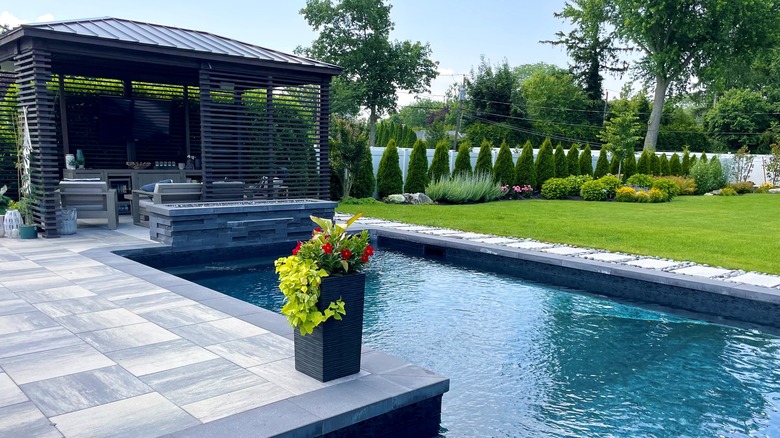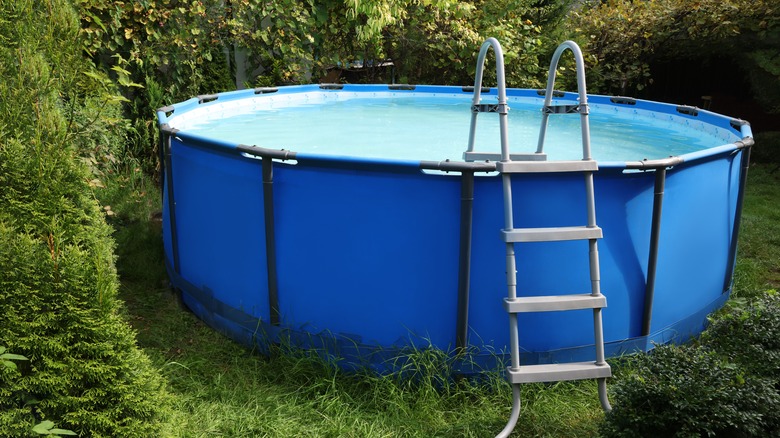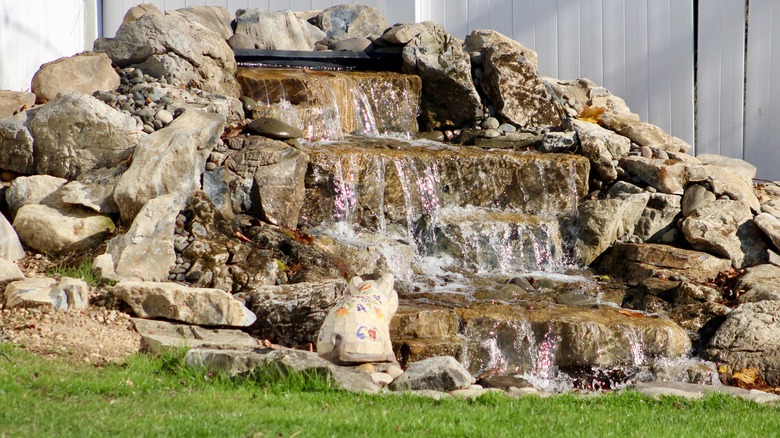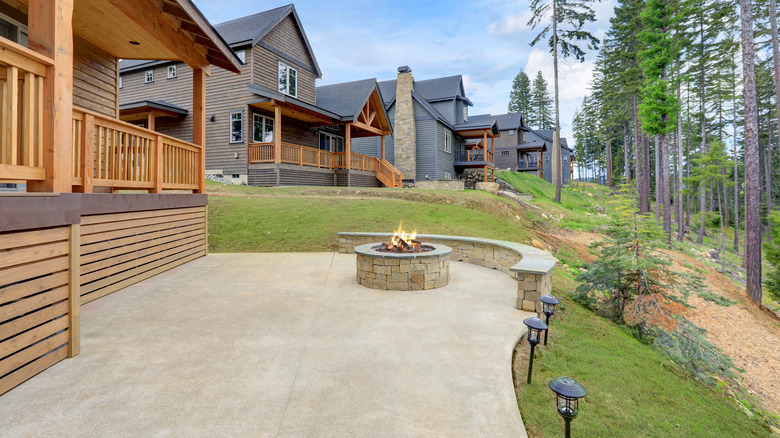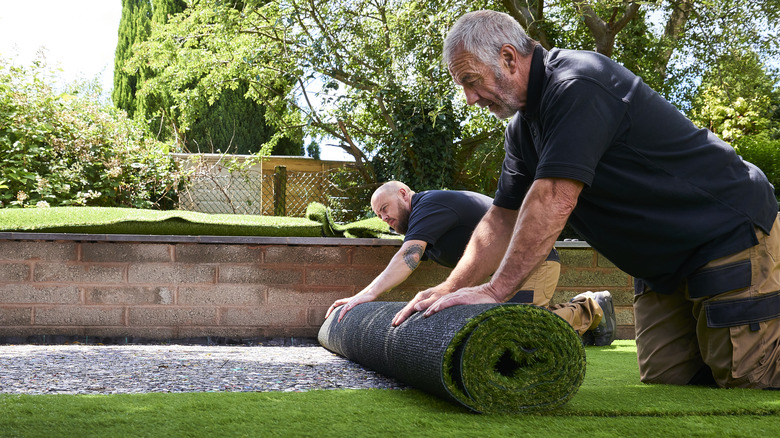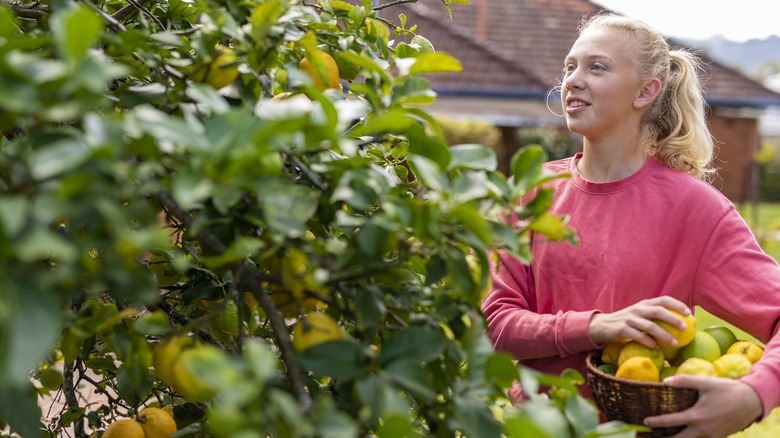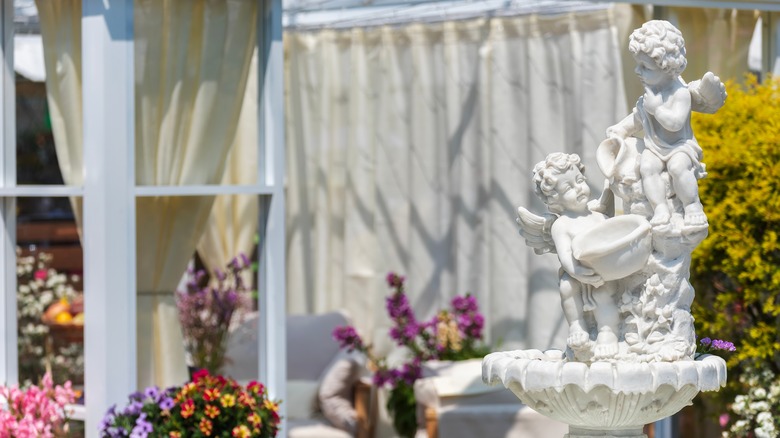Backyard Features That Are Hurting Your Home's Real Estate Value
When you're preparing to sell your house, cleaning, repairs, and staging are all key factors that can help you get the offer you're looking for. The chances of selling your home also depend on factors outside of the house itself, and this can include your backyard. Not only will you need to address common problems, such as dead trees, overgrown shrubs, or an overgrown lawn, but you may need to consider how some of the features you have added (or are planning to add) could detract from your home's value.
Whether you're looking to sell your home in the near future or are considering an outdoor project, it's important to know which key backyard items could potentially impact your home's value in the long run. Among these are natural elements, such as certain trees or grasses, water features, or certain art fixtures. This also doesn't mean you need a cookie-cutter home. But you should be smart about what backyard features you add so they can both benefit your home's aesthetic and market value.
Above-ground pool or hot tub
Homeowners longing for their own backyard pools or hot tubs often justify the expense by assuming that these features offer a good return on investment. Still, the statistics aren't in their favor. In fact, a 2023 report published by the National Association of Realtors estimated that an 18-foot by 36-foot in-ground pool offered only a 56% return on investment. Before adding a less expensive above-ground option, remember that some people consider these non-aesthetically appealing compared with traditional in-ground versions. Also, depending on potential buyers' needs, they may view the pool or hot tub as a hazard for young children or pets or simply time-consuming to maintain. Having any pool on your property also inevitably increases insurance, energy, and water costs.
On the flip side, some prospective buyers do want backyard pools, especially for homes in warmer climates. The key thing to understand here is that spending the money on this investment won't guarantee an increase in your home value when you're ready to sell at some point. Instead of adding an above-ground pool or hot tub solely to increase property value, the decision ought to rest on you and your family's preferences. If you do decide to add one of these features in your backyard, make sure you choose the best above-ground pool or hot tub, and ensure that it is well-maintained throughout the year so it doesn't turn into a potential eyesore.
Complex water fixtures
Not all backyard water features are designed for swimming. If you love the look and sound of water and want to create a peaceful oasis, you may have previously considered adding a fountain, pond, or waterfall feature in your yard. The benefits of adding outdoor water features are plentiful and can go beyond the aesthetics. In fact, some people install these features in their yards to benefit their mental health, as well as to offer sources of water for wildlife such as birds and squirrels. Given these benefits, it may be difficult to imagine that outdoor water features could actually hurt your home's value, but industry experts have found the average decrease in value associated with water features was around $10,500. The bottom line is that not all potential homeowners are up for the maintenance involved with these water features (similar to pools and hot tubs).
If you do want to add a fountain, koi pond, waterfall, or other water feature in your backyard, make sure you're doing so for your own benefit and not necessarily to increase the value of your home. When it comes time to sell your house, you'll want to keep in mind that not everyone will value your prized water feature as much as you do. You may also consider choosing a feature with the least amount of maintenance possible — something both you and a future buyer of your home will appreciate.
Over-sized concrete patio
If you want to increase outdoor living experiences, adding a patio is one way to achieve this goal. According to the 2023 report from the National Association of Realtors, a new patio increased homeowner satisfaction, with about 95% of the cost recovered at the time of selling. This is compared with a wood deck, which had an 89% return on investment. The patio also offered a 9.9/10 joy score, which refers to the overall project experience and enjoyment after completion. Such factors may contribute to your home's resale value later down the line. But while a concrete patio can add to your home's value, overdoing the size and reducing the lawn space may have the opposite effect. Not only is some green space desirable from an aesthetic point of view, but prospective buyers may want some grass for their children or pets.
Before you get too concrete-heavy in your backyard, consider drawing out a design of your proposed project to help balance out the patio and lawn. If you're set on a large concrete patio, just keep in mind that a prospective homeowner might want to cut it down and may even deduct the project's costs from their offer. If you go grand, you could add some plants along the concrete patio to give the illusion of more green space. Finally, no matter what size patio you are planning to install, be mindful of the cost of extravagant finishes.
Artificial grass
Also called artificial turf, faux grass may offer a solution for homeowners looking to have the least amount of regular yard maintenance as possible. Artificial grass can sometimes be beneficial if you have dogs, as it won't get destroyed by urine like natural grass. The downside is that artificial grass may decrease the value of your home. While it requires less work to maintain, artificial grass is expensive to replace once it wears down. Aside from the cost of replacement, many homeowners simply want natural grass and wish to leave artificial grass for sports fields.
If you're looking to rip out or replace your turf, using natural grass may be a safer bet in terms of preserving your home's value. There are a variety of grasses you can consider based on where you live and how much maintenance you can dedicate to your lawn every week. Examples include Bermuda, Kentucky bluegrass, and ryegrass. Choosing artificial grass might make more sense if you live in a drought-prone area, reside in a neighborhood of other artificial lawns, or if you simply cannot maintain natural grass as you would like. If you do go this route, just be sure to invest in high-quality turf and be aware that you may need to replace it after roughly 15-20 years.
Too many fruit trees
As a rule of thumb, planting too many trees right near your home can decrease its value due to concerns over size, maintenance, and lack of yard space. Perhaps even worse is planting a variety of fruit trees. While this might seem like a good way to get produce right from your own yard and, in some cases, could provide a tropical appeal, fruit trees can hurt your home's resale value for a few reasons. Not everyone is up for the maintenance, and fruit trees can create quite a mess on the property. Plus, depending on the type of fruit tree, it can grow large and attract unwanted pests, such as flying insects and rodents.
There are many considerations to make before planting a fruit tree in your backyard, and home value is just one of them. Overall, fruit trees don't directly increase your property value. If you do want to have a fruit tree for your own use, consider planting one or two to see how you can handle the maintenance. If you are planting trees for the sole purpose of increasing the value of your home, stay away from fruit trees. More mature trees may increase property value slightly, with exact statistics depending on size and location.
Outdoor artwork
One way to truly make your backyard your own is to add artwork to showcase your personality. Ideas include sculptures of stone or metal, painted decks or fences, or even decorative gates. While there are many ways to add creativity to your outdoor space, it's important to keep in mind that not everyone has the same tastes. If your yard is found to be too eclectic by prospective buyers, this could hurt your chances of selling your home at the price point you're hoping for. A buyer could either be turned off by too many art pieces or may put in a low offer because they anticipate doing a lot of work to the backyard to remove any fixtures they don't like.
Of course, this doesn't mean you have to settle for a boring yard without any artwork whatsoever. If you plan on staying in your home for years to come, you can get as creative as you'd like and consider several ways you can incorporate art into your backyard. Your best bet may be to add removable, non-permanent fixtures that can be taken down should you do try to sell your home one day. These include small statues, outdoor metal art, or colorful wind chimes. Another key here is not to overdo the art. Instead, consider adding a few pieces to your yard's natural landscape tastefully.
